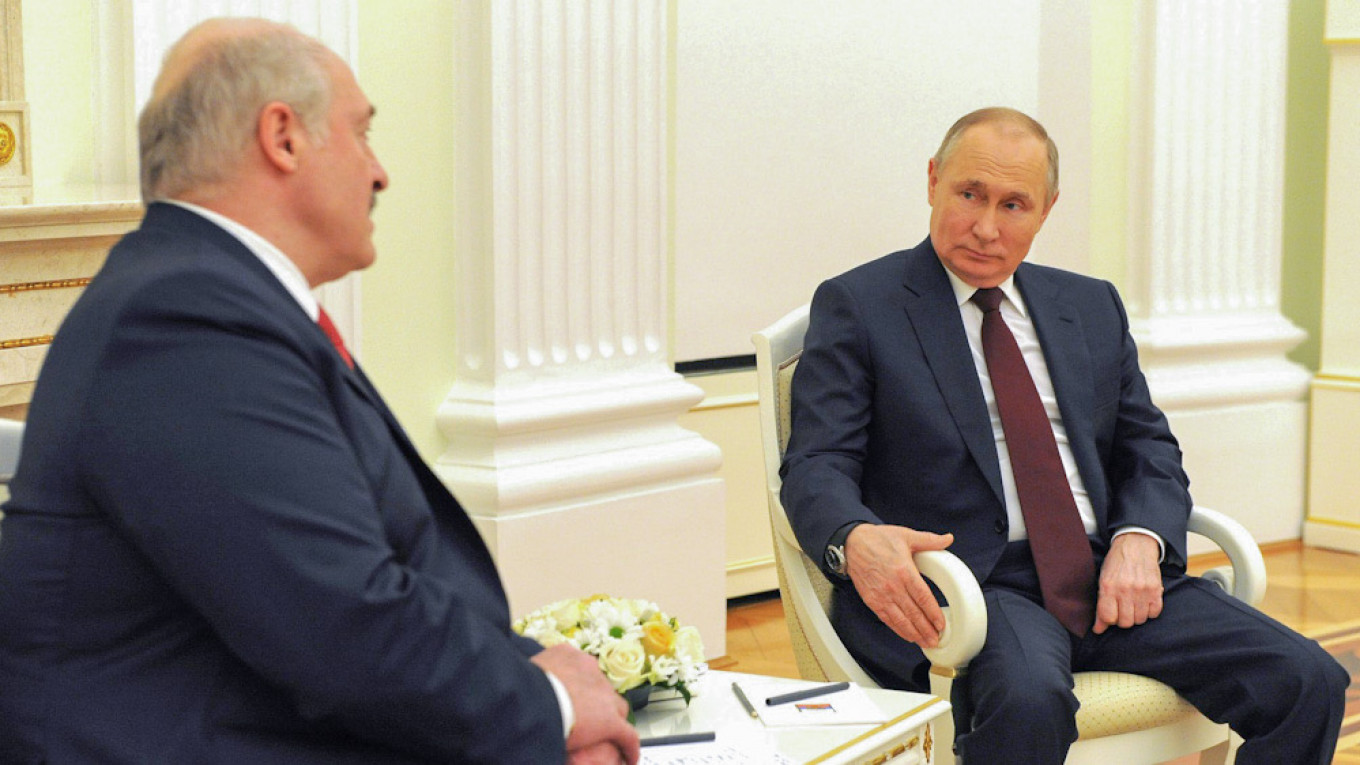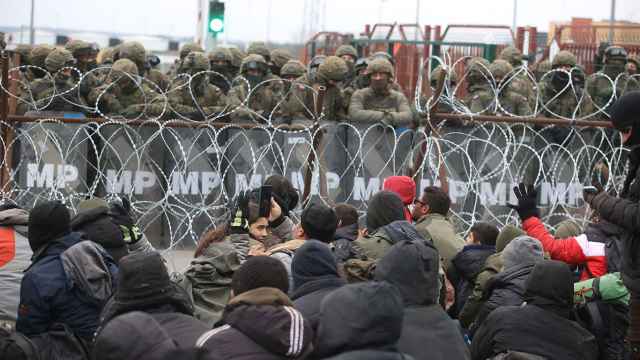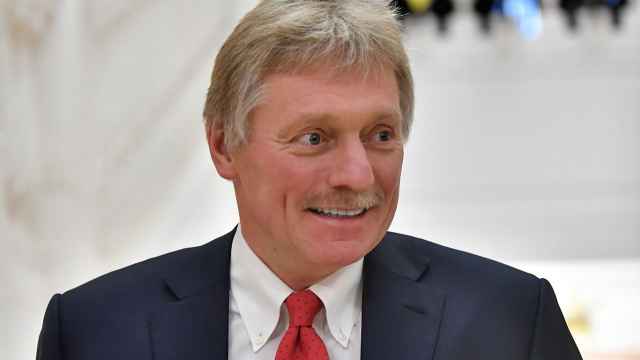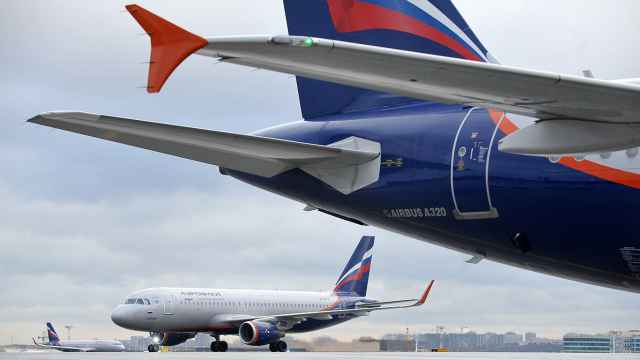The only the thing the public has been told about the recent five-hour meeting between Russian President Vladimir Putin and Belarusian President Alexander Lukashenko is that Putin invited his guest to go swimming and that Lukashenko promised to show his host some documents he carried in his grandfather’s phoney carpet bag.
The whole thing was a photo op for voters of the same retirement age in both “fraternal” countries. It was an attempt to impress them with the two leaders braving the elements, with five hours of supposedly fruitful talks and a carpet bag from which Lukashenko could magically retrieve documents revealing “the true situation” the same way Marry Poppins could fantastically pull floor lamps and furnishings from hers.
On the second day, the Kremlin reported the second tranche of a Russian loan to Minsk — that had actually been agreed upon earlier — and showed a reprise of “brotherly love between dictators,” with hugs and a luncheon on Putin’s yacht as Lukashenko’s son, Kolya, joined in the fun. The idyllic scene, that was supposed to demonstrate Russia’s support for scandal-plagued Lukashenko, was actually a cover for the dramatic reality of the two countries’ “inimical union.”
The current storyline in Russian-Belarusian relations stems from the annexation of Crimea and the Kremlin’s resultant large-scale confrontation with the West. After the Kremlin turned the historically allied Ukraine into an enemy, literally forcing it to become a protectorate of the West,
Belarus — the little wagon once hitched to Russia’s star — has taken on much greater importance.
In fact, Belarus is now the Kremlin’s only full-fledged ally, its only true satellite state — except that it isn’t an unqualified ally or an entirely reliable satellite.
Lukashenko’s decision not to recognize Crimea as Russian territory was more than a symbolic act. He thereby kept the “door to the West” open and reserved himself a seat on the ark of the international majority. It also strengthened Lukashenko’s hand as a mediator in the “Minsk Process” talks between Russia and Ukraine. This mantle of neutrality also underscored Moscow’s vulnerability and isolation in its confrontation with the West. Under such circumstances, the Kremlin’s siloviki considered Lukashenko’s drift towards the West completely unacceptable.
Therefore, immediately after the start of Putin’s current term in office, the Kremlin launched an operation designed to more reliably and irreversibly “bind” Belarus to Russia, and quickly named security official and close Putin associate Mikhail Babich as ambassador to Belarus.
Most observers viewed the Kremlin’s new Belarus strategy as part of the overall task of extending Putin’s presidency — and, most likely, there really was a plan to unite Russia and Belarus.
However, the more important and strategic task remained to decisively “tie the hands” of the Belarusian leader and deprive him of the possibility of making overtures to the West for at least several years. And this task became no less urgent simply because Lukashenko’s intractability and other complications forced the Kremlin to abandon plans to name Putin the head of the Union State linking the two countries.
The Kremlin almost certainly worked to undermine Lukashenko’s “re-election” in 2020, and at his election rallies, Lukashenko, exploited those efforts as a “Kremlin threat to Belarusian sovereignty.” In the 2010s, Lukashenko used this issue of “national sovereignty” as domestic political capital in the same way he had relied on the promise of “union with Russia” in previous decades.
However, it seems that neither he nor the Kremlin realized the extent to which his “credit” had been devalued with the Belarusian people, or how much the protest mood in the country had grown.
In a broader sense, they underestimated the fundamental shift in attitudes that had taken place, at least among the younger citizens of the republic who envision Belarus becoming more a cozy little province of Eastern Europe, like neighboring Lithuania, than an outpost of flawed Russian great power.
Now, not a trace is left of the dream of reviving the Soviet brotherhood — a promise Lukashenko once openly relished and which Putin had thought to turn to his advantage.
As a result, Lukashenko’s election loss turned into a full-fledged political crisis for him.
In the eyes of Moscow, it robbed him of the political capital he needed to be able to control Belarus reliably in the future by maneuvering between limited repression and popularity with the “hegemon.”
But it has preserved Lukashenko’s value to Moscow as a Moor who must do his job.
The Kremlin now expects him to crush the Belarusian opposition in the bud, thereby securing its plan for a creeping de facto takeover of Belarus. This plan postpones indefinitely symbolic acts of political unity between the two countries — that the Belarusian people oppose — in favor of the urgent task of “prying open” Belarus for the penetration of Russian capital, political forces and siloviki, and for creating a “two-key” system for the strategic management of Belarusian affairs.
The hijacking of the Ryanair plane marked a new twist in the plot. Who planned it and why?
The first consequence of the operation was the demise of Belavia, probably the country’s most successful economic project of the last decade. Belavia had advanced the country’s natural competitive advantage as a potential transit hub and given it an image boost — a sort of first positive step into Europe and the European market. Why sign a death sentence on the business? For the pleasure of watching jailers beat up a 26-year-old boy in his cell via video link?
What’s more, EU foreign ministers have not yet announced a final package of sanctions against Minsk, but have indicated the possibility of levelling sectoral sanctions against the Belarusian economy.
Indeed, the seizure of Roman Protasevich was a symbolic act that has forced Europe to respond to the Lukashenko regime’s human rights violations and its iron-fisted methods for suppressing the opposition.
The U.S. has already re-imposed sanctions against the country’s export sector, but Belarus does not export anything to the U.S. Belarus exports to Europe, however, and those shipments totaled $8.5 billion in 2019, most of which was in refined oil products and petrochemicals. And, if Europe was to duplicate U.S. sanctions in some form, the loss of a significant part of those revenues would deliver a powerful blow to the Belarusian economy and to Lukashenko’s standing at home.
At first glance, such a scenario makes Belarus even more dependent on the Kremlin, pushing it further into unfriendly allied arms.
However, the other side of the coin is that Moscow probably has no desire to financially compensate Belarus for its losses in the European markets — that is, the Kremlin won’t go so far as to pay Lukashenko to play the role of the Moor.
If the costs of forced integration had been a counterargument before the current problems, now Belarus — which, according to German Foreign Minister Heiko Maas could become the subject of a “spiral of sanctions” — is beginning to look more like a stone around Moscow’s neck. And it comes at a time when Russia is itself trying to mobilize resources to survive its own international isolation and unfavorable market conditions.
In other words, Belarus’s deepening political isolation makes it easier for Moscow to force Lukashenko into obedience.
And this seems like a very serious argument in favor of the Kremlin simply “freezing” relations with Minsk, returning them to their traditionally amorphous and contradictory status quo and putting off the search for a solution until some future date. Moreover, it will take several years for Lukashenko’s current cloud of toxicity to dissipate enough for it to flirt with Europe again.
But what is truly amazing is how Lukashenko — a fierce enemy of democracy and Western values who pioneered the “Slavic dictatorship,” a natural ally of the Kremlin who is heavily indebted to and practically dependent on the Kremlin for everything — manages to remain a bone lodged firmly in Moscow’s throat, moving neither forward nor backward.
A Russian version of this article was first published by Proekt
A Message from The Moscow Times:
Dear readers,
We are facing unprecedented challenges. Russia's Prosecutor General's Office has designated The Moscow Times as an "undesirable" organization, criminalizing our work and putting our staff at risk of prosecution. This follows our earlier unjust labeling as a "foreign agent."
These actions are direct attempts to silence independent journalism in Russia. The authorities claim our work "discredits the decisions of the Russian leadership." We see things differently: we strive to provide accurate, unbiased reporting on Russia.
We, the journalists of The Moscow Times, refuse to be silenced. But to continue our work, we need your help.
Your support, no matter how small, makes a world of difference. If you can, please support us monthly starting from just $2. It's quick to set up, and every contribution makes a significant impact.
By supporting The Moscow Times, you're defending open, independent journalism in the face of repression. Thank you for standing with us.
Remind me later.








